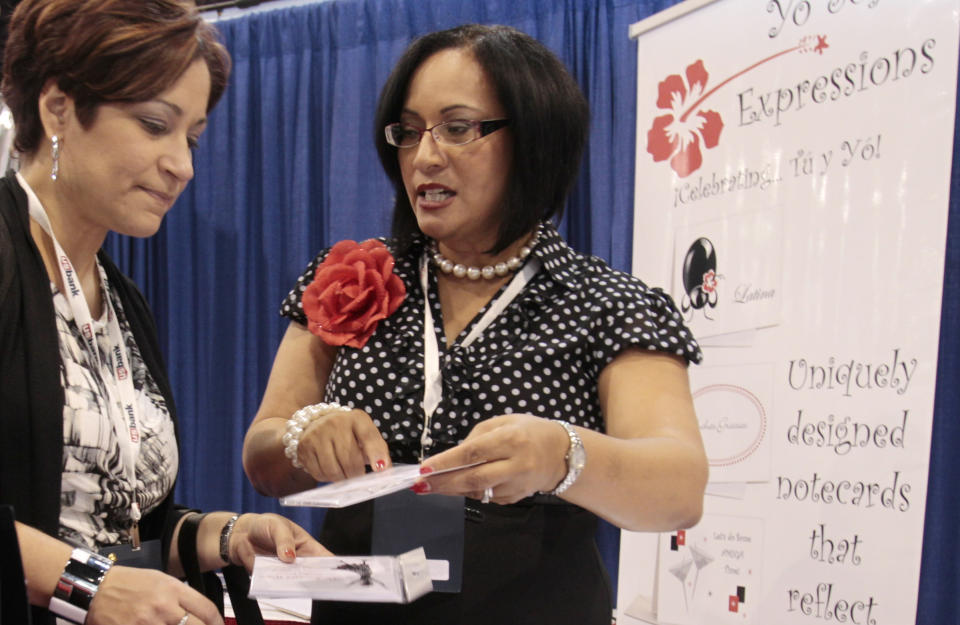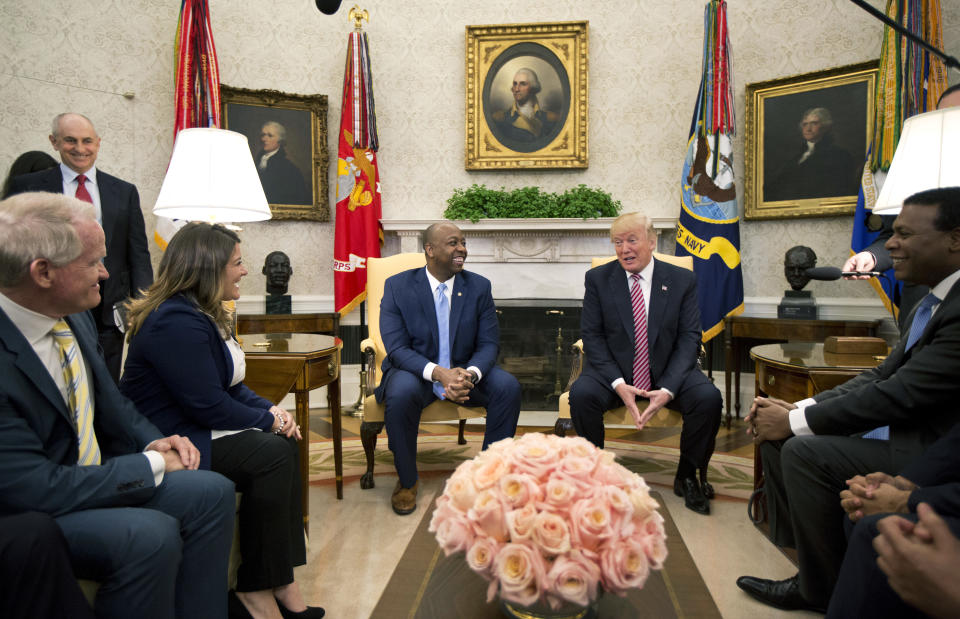Minority entrepreneurship on the rise: report

Minorities are more interested in starting their own business compared to the rest of the population, according to a new Northwestern Mutual survey.
More than 65% of the survey’s 8,000 American respondents consider themselves aspiring entrepreneurs, but entrepreneurs of color want to start businesses at a rate of 20% more than their peers.
Minorities were also more likely to start successful side hustles that they want to turn into a business. They also took steps to make aspirations a reality: 40% of entrepreneurs of color had assistance from financial advisors, compared to 28% of their white counterparts.
And according to Ron Busby, president and CEO of the U.S. Black Chambers (USBC), a business conference of black chambers of commerce and nationwide small business associations, this increased interest is represented in increased minority entrepreneurship.
“Going back to the last census in 2012, there were 1.9 million black businesses,” Busby said. “Now we have 2.6 million. So that’s approximately 700,000 black business growth.”
According to the U.S. Census, Asian-American-owned businesses have increased since 2007 by nearly 30%, to 1.9 million in 2012. According to the U.S. Hispanic Chamber of Commerce, Hispanic-owned businesses totaled 4.4 million last year, a 33% increase from the 3.3 million highlighted by the Census in 2016.

This increase is understandable to Trevor Wilkins, a principal at Quake Capital, a venture capital firm and startup accelerator.
“Corporate America is not set up to benefit people of color. Some minorities feel there is a lower glass ceiling than for their white counterparts,” Wilkins said. “So there are more incentives for them to start their own business.”
More minority-led companies are also seeking funding, he said: “It takes a while to get to the point where you can seek funding. Nobody is getting funded off an idea these days unless they have credentials similar to the Zuckerbergs of the world.”
“If they are seeking funding and being considered — and in some cases getting term sheets – it means that these companies are starting to reach a level of maturity that makes investors realize that there is an opportunity there regardless of skin color,” he explained.
But it is still hard, particularly for black-owned startups to get VC funding, says Busby.
Venture capital funding increased in 2018 from last year, according to CB Insights. While that uptick trickles down to minority entrepreneurs, Busby questions if it’s enough.
“Black firms will get a small percentage of what they really need,” Busby argued. “So they have longer startup times so the return on investment isn’t as great, or as quickly returned because they don’t have the opportunity to accelerate at the same rate as their white peers.”
Bias at play
Money isn’t the only hurdle facing minority entrepreneurs.
“From a founder standpoint, there is an issue of confidence,” Wilkins said. “To a certain extent, you have racial bias playing a factor. Not seeing people who look like you in the space can be intimidating.”
It’s a sentiment that Busby echoes.
“Well I hate to say it, but I think discrimination is still a key factor,” Busby said. “We did research and we found it was a large part in applications being denied or credit not approved.”
And many are funding themselves. “Young people are getting creative. Joint ventures and partnerships where people get together is really helping many of the new startups that we’re seeing coming from the African-American community,” he said.
Minority entrepreneurship might be increasing, but both Busby and Wilkins agree more could be done legislatively. Currently, there are programs in place that aim to boost minority entrepreneurship.

In 2017, the White House created “opportunity zones,” which the Internal Revenue Service describes as “an economically-distressed community where new investments, under certain conditions, may be eligible for preferential tax treatment.”
“They’ve made a decision to do the opportunity zones, which is, I guess, a partial solution,” Busby said. “But they have to be more diligent in ensuring that black businesses get an opportunity to participate. That they don’t come into our communities to gentrify without our ability to compete.”
Favoring certain groups
To increase minority entrepreneurship Busby said there needs to be more accountability of procurements when looking at both the private and public sectors.
“When you no longer account for disadvantaged business, you’ll see what is happening now,” Busby said. “Contracting goes towards large firms, and minorities have little representation there.”
Research from the Center for Responsive Politics shows that women and minority-led businesses only receive a small fraction of federal contracts.
The federal government has increasingly awarded more contacts to women and minority-owned businesses since 2008, but of the more than $500 billion awarded to businesses in 2017, less than $50 billion went to minority-owned businesses.
Busby said that for black-owned businesses specifically, things have not gotten better with the current administration.
“Under the current administration, there has been little help to the black community,” he explained, adding that the groups that have done well under this current administration include businesses owned by Asian-Americans, women and veterans.
According to statement from the Trump administration, the White House is creating a better environment for minority businesses through “job training, tax reform, and deregulation.”
“The MBDA [Minority Business Development Association, a government agency] was budgeted to be zeroed out. The USBC fought diligently to keep it funded. They have continued to try and work with the minority community but they are looking at the top 1% or 2% of businesses in that community.”
After being eliminated in the 2018 budget, the White House restored the agency in its 2019 budget.
